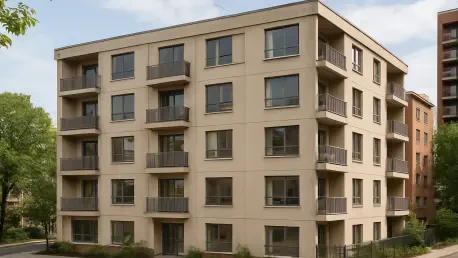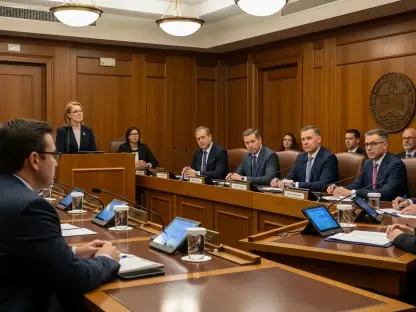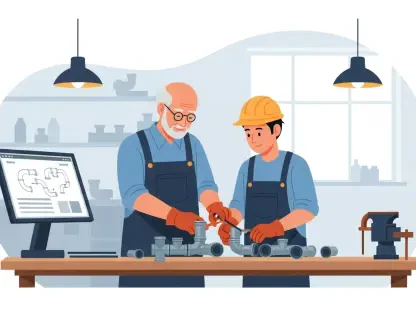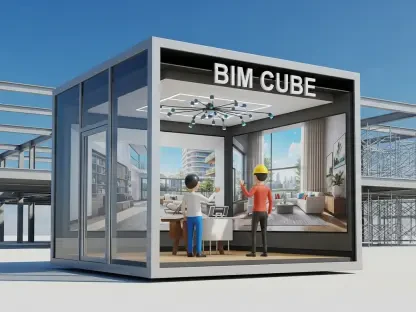In the heart of Arlington County, a pressing challenge looms large as skyrocketing housing prices and high office vacancy rates collide, creating a unique opportunity for urban transformation. With a growing population and limited space for new construction, local leaders are grappling with how to meet housing demands while revitalizing underused commercial areas. A recent candidate forum hosted by Arlingtonians for a Sustainable Future brought this issue into sharp focus, as County Board hopefuls debated the potential of converting aging office buildings into residential and hotel spaces. Their discussions revealed a blend of optimism and caution, highlighting a strategy that could reshape the county’s landscape. As Arlington seeks sustainable solutions, the idea of repurposing vacant offices has emerged as a promising, yet complex, path forward, sparking curiosity about whether this approach can truly address the dual crises of housing scarcity and commercial stagnation.
Exploring Candidate Perspectives on Urban Redevelopment
Optimism for Office-to-Residential Shifts
The forum, which included four of the five candidates running for the County Board under ranked-choice voting rules, showcased a shared enthusiasm for converting office spaces into homes and hotels. Incumbent Chair Takis Karantonis pointed to recent progress, noting that the County Board has already greenlit the transformation of three office buildings in key areas like Crystal Drive and Wilson Boulevard. These projects are anticipated to significantly cut the county’s office vacancy rate while adding hundreds of new apartments and hotel rooms in the near term. This momentum reflects a broader vision of adapting to changing economic realities, where remote work trends have left many commercial spaces empty. The candidates largely agreed that such conversions could breathe new life into these structures, turning them into vital components of a thriving community and addressing housing shortages in a practical way.
Financial and Practical Hurdles in Conversion Efforts
Despite the positive outlook, significant barriers to widespread office-to-residential conversions were a recurring theme in the discussion. Independent candidate Audrey Clement, a longtime proponent of this strategy, emphasized the daunting financial costs associated with renovating older buildings. In many cases, the expense of retrofitting these spaces to meet residential standards can rival or even exceed the cost of tearing down and rebuilding from the ground up. This economic reality has slowed the pace of projects, with only a handful currently in motion despite the clear need for more housing. The challenge lies in finding viable funding models or incentives to encourage developers to take on these transformations, a concern that resonates across the candidate pool. Balancing fiscal responsibility with the urgent demand for new units remains a critical issue that could determine the success of this initiative.
Balancing Community Needs with Development Goals
Addressing Public Service Demands and Planning
As the conversation deepened, candidates raised important concerns about the broader implications of converting commercial spaces into residential ones, particularly the strain on public services. Republican challenger Bob Cambridge cautioned that shifting from office to residential use often increases the need for schools, public safety resources, and infrastructure, demands that differ starkly from those of commercial tenants. Without careful foresight, such transitions could overwhelm local systems, creating unintended consequences for taxpayers and residents alike. Thoughtful urban planning, he argued, must accompany these projects to ensure that growth does not outpace the county’s capacity to support it. This perspective underscores the necessity of a strategic approach, where conversions are not just about filling vacant spaces but about fostering sustainable communities that can thrive over the long term.
Prioritizing Affordability and Community Input
Another critical dimension of the debate centered on ensuring that converted spaces serve a diverse population while respecting community voices. Cambridge advocated strongly for including housing options for lower-income residents, highlighting the importance of socioeconomic diversity in Arlington’s future. Karantonis echoed this sentiment, acknowledging the current reality of prohibitively high housing costs and supporting the development of units at varied price points to enhance affordability. Meanwhile, independent candidate Carlos De Castro “D.C.” Pretelt stressed the need to bridge the gap between county decisions and resident concerns, noting that many feel sidelined in the planning process. Engaging with the community, he suggested, is essential to ensure that conversions align with local needs and values. This focus on inclusivity and equity reveals a shared commitment among candidates to make redevelopment a tool for broader social good, rather than a narrow fix for vacancy rates.
Reflecting on a Path Forward for Arlington
Building on Past Momentum
Looking back, the candidate forum held by Arlingtonians for a Sustainable Future proved to be a pivotal moment in shaping the discourse around office-to-residential conversions in Arlington County. The event spotlighted a rare consensus among contenders, who collectively endorsed the idea as a viable response to both housing shortages and vacant commercial spaces. Their discussions captured a sense of urgency, tempered by a realistic appraisal of challenges like renovation costs and service demands. The approval of initial projects, which reduced vacancy rates and promised new living spaces, stood as a testament to what had already been achieved, setting a foundation for future efforts. This early success became a rallying point, illustrating the tangible impact of innovative urban strategies in a densely populated region.
Charting Future Steps for Sustainable Growth
As Arlington moves ahead, the insights from the forum underscored actionable priorities that had been deliberated with care. Ensuring affordability in converted units emerged as a non-negotiable goal, alongside the integration of robust planning to support increased public service needs. Equally important was the commitment to fostering dialogue with residents, ensuring that their voices shaped the transformation of their neighborhoods. Exploring financial incentives or partnerships to offset renovation costs also surfaced as a potential solution to accelerate progress. These steps, drawn from the candidates’ varied perspectives, offered a roadmap for balancing growth with responsibility. The path forward, as discussed, hinged on collaborative efforts to turn vacant offices into vibrant, inclusive spaces that could redefine Arlington’s urban fabric for generations to come.









